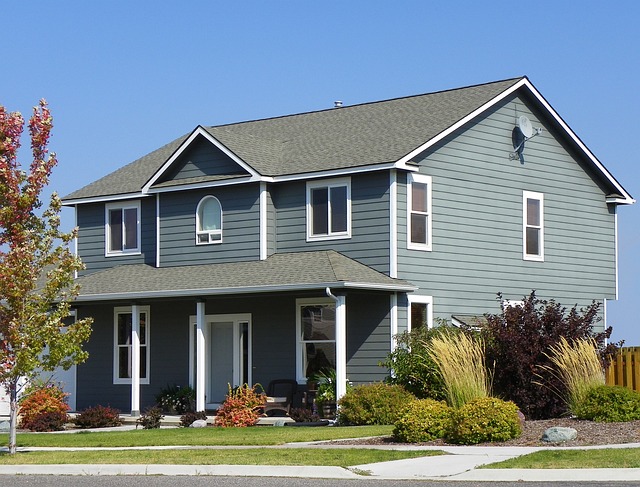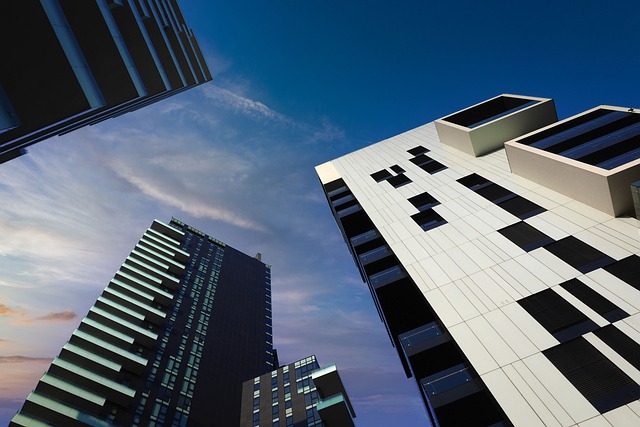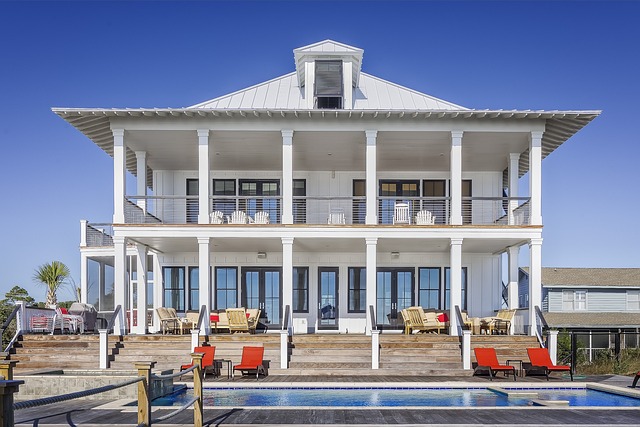2023 marks a significant advancement in Singapore's environmental agenda with a series of ecological conservation projects under the banner of Available Ec In Singapore. These initiatives, including expanding habitats at Sungei Buloh Wetland Reserve and developing the Lee Biological Reserve, demonstrate Singapore's commitment to preserving its unique biodiversity and promoting sustainable living within urban environments. The projects aim to enhance green spaces, integrate greenery into daily life for residents, and empower the community to engage with conservation efforts through accessible data and resources. Singapore's approach to ecological integration within Available ECs is pioneering, with these housing developments serving as vital components of sustainable development, blending green architecture with energy efficiency and promoting natural ecosystems. The government supports these initiatives with incentives that encourage developers to adopt sustainable technologies like solar panels and water recycling systems. These efforts are designed to reduce Singapore's carbon footprint, nurture a sense of environmental stewardship, and establish the nation as a model for sustainable living in densely populated cities worldwide. The comprehensive slate of ecological restoration initiatives in Available Ec In Singapore is set to enhance biodiversity, bolster resilience against environmental changes, and educate the public on conservation. These projects aim to restore and maintain healthy ecological communities within the city-state's urban landscape, positioning Singapore as a leader in urban ecological restoration and sustainability.
2023 marks a pivotal year for environmental conservation in Singapore, with a series of ambitious EC projects on the horizon. These initiatives underscore the nation’s commitment to ecological sustainability and biodiversity preservation. From innovative restoration efforts to community-driven conservation programs, the upcoming projects promise a strategic expansion of habitats and protective measures for diverse species. Dive into “Exploring the Frontiers” to uncover how Singapore is pioneering new paths in ecosystem conservation, with a particular focus on the ‘Available EC’ program. This article delves into the impactful strategies being implemented and how they will shape the green landscape of this dynamic island nation.
- Exploring the Frontiers: A Glimpse into Upcoming Ecosystem Conservation Projects in Singapore
- Singapore's Green Initiatives: The Role of 'Available EC' in Sustaining Biodiversity
- Innovative Approaches: Upcoming Ecological Restoration Efforts and Their Impact
- Community-Driven Conservation: Participatory Projects Shaping Singapore's Eco-Future
- Strategic Expansion: The Planned Habitat Enhancements and Species Protection Measures in Singapore
Exploring the Frontiers: A Glimpse into Upcoming Ecosystem Conservation Projects in Singapore

2023 marks a pivotal year for Singapore’s environmental initiatives, with several ecosystem conservation projects slated to commence or reach significant milestones. These endeavors are set to expand the green footprint of the nation, highlighting its commitment to biodiversity and sustainable living. The upcoming projects not only aim to preserve the existing natural habitats but also to explore innovative ways to integrate greenery into urban landscapes. One such project is the expansion of the Sungei Buloh Wetland Reserve, which will offer new areas for wildlife observation and research, enhancing its status as a key site for migratory birds and marine life. Additionally, the Lee Biological Reserve is set to undergo development, with initiatives focused on restoring critical ecosystems and providing educational platforms for both locals and visitors alike. These projects are part of Singapore’s AvailEc in Singapore initiative, which prioritizes the availability and accessibility of ecological conservation information and resources for the community. With these advancements, Singapore continues to pioneer eco-friendly practices that resonate globally, demonstrating a harmonious balance between progress and preservation.
Singapore's Green Initiatives: The Role of 'Available EC' in Sustaining Biodiversity

In recent years, Singapore has been at the forefront of green initiatives, demonstrating a commitment to sustainable development and biodiversity conservation. The role of Available Executive Condominiums (ECs) in this environmental endeavor is multifaceted. These housing developments are not merely residential spaces; they are integral components of Singapore’s broader ecological strategy. With the integration of green architecture, energy-efficient designs, and communal spaces that promote natural flora and fauna, Available ECs serve as micro-ecosystems within urban settings. They provide habitats for local species and ensure that greenery is a pervasive element in the lives of residents, fostering an appreciation for biodiversity from the ground up.
Moreover, the Singaporean government’s support for EC projects that align with green living principles is evident through various schemes and incentives. These initiatives encourage developers to incorporate sustainable features such as solar panels, water recycling systems, and rooftop gardens into their projects. As a result, Available ECs not only offer residents a chance to live in eco-friendly environments but also contribute significantly to the city-state’s goal of reducing its carbon footprint and preserving its unique biodiversity for future generations. The integration of these green initiatives within Available ECs underscores Singapore’s dedication to harmonizing urban growth with ecological consciousness, setting a benchmark for sustainable living in dense, urban landscapes.
Innovative Approaches: Upcoming Ecological Restoration Efforts and Their Impact

2023 promises a slate of ecological restoration initiatives in Singapore, showcasing the nation’s commitment to environmental conservation and biodiversity enhancement. Among these projects, the upcoming efforts are set to incorporate innovative approaches that leverage both traditional and cutting-edge methods. These include the rehabilitation of mangrove forests and coral reefs, which play pivotal roles in coastal protection and marine life sustenance. The use of native plant species in restoration activities not only aids in the preservation of genetic diversity but also ensures that the ecosystem regains its resilience to local conditions. Additionally, the integration of ecological sensors and monitoring technology into these projects will provide real-time data, enabling more precise and responsive management strategies. These initiatives are poised to significantly improve the health of available ecological communities in Singapore, fostering habitats that are both diverse and sustainable. The anticipated outcomes of these projects extend beyond immediate environmental benefits; they also aim to educate and engage the public, promoting stewardship and appreciation for the natural world within an urban setting.
Community-Driven Conservation: Participatory Projects Shaping Singapore's Eco-Future

Singapore is charting a sustainable course into the future with its community-driven conservation initiatives, which are integral to preserving the nation’s ecological integrity. These participatory projects empower residents and stakeholders to take an active role in environmental stewardship. One such initiative involves the creation of biodiversity parks, where native flora and fauna thrive alongside recreational spaces. These green spaces serve as vital habitats and are instrumental in fostering a deeper connection between Singaporeans and their natural environment. The National Biodiversity Action Plan is a key framework guiding these efforts, with the aim of identifying and protecting ecologically sensitive areas and ensuring that available EC (Eco-Centric) projects align with national conservation goals.
Moreover, the “My Watershed” program exemplifies participatory conservation, where residents are encouraged to engage in waterway conservation. This project not only enhances local biodiversity but also promotes community bonding and environmental education. Through such initiatives, Singapore is cultivating a society that values ecological sustainability and collective action for the environment. The participation of the community is pivotal, as it ensures that projects are responsive to local needs and reflective of shared values. These participatory projects are a testament to Singapore’s commitment to shaping an eco-conscious future, one where the available EC projects play a crucial role in harmonizing urban development with ecological preservation.
Strategic Expansion: The Planned Habitat Enhancements and Species Protection Measures in Singapore

2023 marks a pivotal year for ecological conservation in Singapore, with a series of strategic expansion plans set to enhance habitats and bolster species protection efforts. The Environmental Conservation (EC) projects aim to expand the green network across the island, creating a more connected and resilient ecosystem. These initiatives include the restoration of mangrove forests, which are crucial for biodiversity and carbon sequestration, as well as the development of new wildlife corridors that will allow species to navigate the urban landscape safely. The EC is also implementing advanced monitoring technologies to track population changes and habitat health, ensuring that conservation measures are effective and responsive to environmental shifts. These efforts not only contribute to the available ecological infrastructure in Singapore but also align with global biodiversity goals. The integration of natural ecosystems within urban spaces will not only enhance the quality of life for residents but also ensure that Singapore’s natural heritage is preserved for future generations. Through these forward-thinking projects, Singapore aspires to be a model for urban ecological sustainability.



